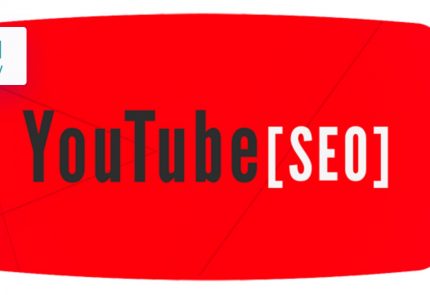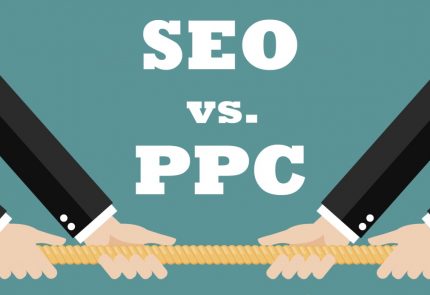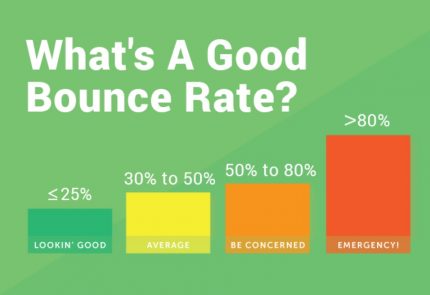Once you’ve successfully launched your new website, there’s only one thing on your mind – getting it to rank better on search engines. The time to start optimising is right now. A new website provides you with a fresh template for working on your SEO strategy. There’s nothing holding you back from making an ideally designed website that will reach the very top of search result pages. However, you will need some good strategies to achieve this. Here are a few notable steps you should take your new website through.
Research adequate keyword phrases
Keywords are some of the most essential tools that an online marketer has in their tool belt. If there’s anything that you should focus on when launching your website, it’s proper keyword choice and placement. The keywords you utilize will help get search engines closer to finding your website when users search for specific products and services.
While keywords seem pretty simple in theory, they’re a lot more complicated in practice. Keyword research is a complex field that requires a lot of knowledge and experience to master. In essence, you want to figure out which specific words people are typing in search engines when they want to find something related to your business.
A great way to figure out ideal keyword choices would be to run a search engine advertising campaign. These act as tests that can determine which keywords have thus far been most effective at bringing in traffic to your past websites. More importantly, you can find out which keywords have led to engaged visitors.
Determine high-traffic pages

Website analytics can tell you a lot about your website and the success of your current SEO and marketing efforts. One useful metric that many businesses should be focusing on is their most high-traffic work.
Finding out which page is performing best on search engines can give you insight into how to design and organize future content-rich pages. The very top of search engine results is your goal, which is why it helps to mimic past successes for optimal results. Previously used keywords that are important to your marketing campaign should be re-used in a similarly effective way.
Using assets like Google’s Search Console, you can find out which pages are doing best and figure out how to reuse those keywords. Using similar or identical content can work, especially when keywords are adapted to fit the new website and marketing campaign.
Stay consistent with the content
As you already know, content is what keeps people coming back to your website. As attractive and useful as it might be, content gets visitors interested and they will constantly crave more of it as long as your website stands. This is why you’ll be spending lots of time and money to make sure that your content remains high enough to retain consumers while also intriguing new visitors.
A bunch of high-quality articles and videos mean a lot, but organising them into one coherent and relevant bunch would mean a lot for your rankings.
If your quality content is specialised, it’s likely that visitors will spend a lot of time on your site, prompting search engines to value its pages more and more. Uniform, unique, and informative content to get the job done, especially when you write or produce high-quality pieces on a regular basis. For smaller brands, new websites will prove to be difficult to set up, as it often takes a while before content reaches a balance of quality. Still, consistency is something you should definitely aim for when setting up your website.
Host it well
Before you can start optimising concrete elements of your new website, you’re going to want to get the basics sorted out. Content and optimal search gimmicks can only get you so far, but they won’t be able to make up for some of the most essential parts of your website.
Things like loading speed are absolutely crucial from both a visitor’s and search engine crawler’s point of view. With every other criterion met, your website could still rank pretty low if it’s not hosted on a quality web hosting provider.
Think of an ideal website design that will fit your business’s needs, and then make a list of all the elements you want to be featured on that website. The next logical step would be to find a web hosting provider that can host your website with all these elements, while also making sure it runs smooth and quick. This keeps consumers happy and search engine ranks up.
Set up your 404 page
While this might not seem like the most important element of your new website, you would be surprised at how much influence it could have on its performance. 404 pages serve a critical role in getting users to your new website when links stop working properly. As the team from GWM Brisbane agency remind us, search engines like consistency and they will take note of websites that are getting consistent visitors from specific markets and demographics.
Every website will eventually have pages that have been decommissioned for one reason or another. This doesn’t mean you’ll be able to remove links that lead to it, though. Users will stumble upon your old website’s pages and get disappointed once the 404 error shows up. However, there’s no reason they shouldn’t be diverted to your new website, especially if it features much of the same content.
Ideally, your 404 pages would directly lead to an analogue of the deleted page on your new website, but this simply isn’t feasible, nor is it worth the trouble. Make sure you emphasise that the visitor can find similar and fresh content on your new website and then promptly link to it.
Choose a recognizable domain name

Picking the right domain name can drastically influence the success of your new website. If you’re not distancing yourself from the run of the original website, you can always consider making connections between the two. While this can help consumers finding it somewhat easier, it’s not all there is to it. More importantly, you’re going to want to work on making your domain name ideal for SEO purposes.
Domain names are absolutely crucial for proper SEO. Many of the other steps you apply to your website are going to end up being pointless if you choose the wrong domain name. When it comes to choosing a domain name that fits, think rationally. Pick out a domain name that can represent your brand and allude to the niche your business is in. Instead of going the general route, you should try to make it as personal as possible. Unique and interesting domain names get better rankings from search engines.
Remove SEO barriers
Your ultimate goal is to create a website that is very palatable to search engines and their crawling algorithms. The best place to start is at the very beginning – the creation of your website. This is why it’s crucial that you get it right from the start and make the website attractive and optimised for search engines.
The best way to achieve this would be to go for a website wide SEO audit. Perform a site review and figure out how well your website fares when it comes to SEO elements. An SEO audit can help you see where your website is lacking and how it can be improved. Audits are normally performed by reputable SEO experts with experience in website optimisation. There are countless limitations that can inhibit search engine crawlers that most website owners wouldn’t be able to pick up on. Improper design and low page loading speeds are great examples that limit organic search engine results. As long as you have the right kind of consultants on board, you might be able to fix these issues and improve your rankings.
Develop linking structure
Once you have a good amount of content planned out for your new website, it might be time to look at the linking structure and how to build on it. Having good content is only useful as long as visitors are able to access it from your website. Making this access convenient is crucial if you want to get a maximum number of visitors for every relevant bit of content that you post.
Links need to be intuitive and lead to similar relevant content and resources that users might be interested in. Search engine crawlers quickly catch on to good navigation. Proper linking structures help build connections between various parts of your website, and this is looked at favourably by search engines.
Conclusion
SEO strategising can get pretty tricky, especially when you’re setting up a new website. The good news is that you will have all the experience that you’ve gained through working with your old website, and this knowledge will help propel the new site to even greater heights. Consider some of the above examples of proper search engine optimisation for your website, and you’re likely to see some pretty good results come from it.




